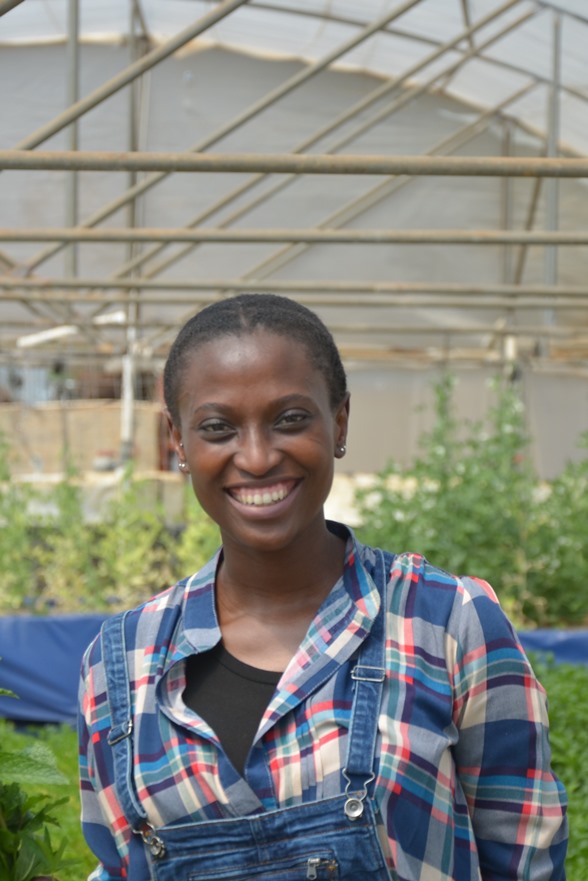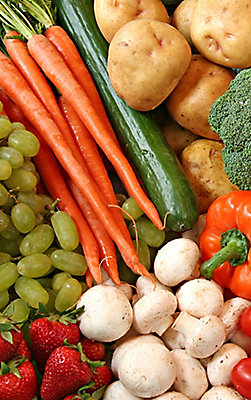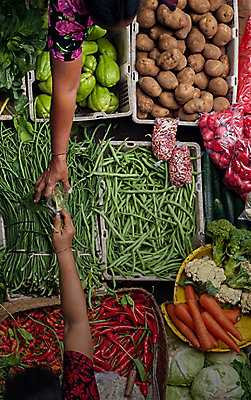Solutions
Learn how we are helping farmers like Musa grow their business, with a product portfolio incorporating seeds, crop protection and digital offerings.
View our products and services Precious Mathibe, captured by the magic of farming from a young age, now owns her own 21ha farm. She had dreamt of farming for the longest time.
Precious Mathibe, captured by the magic of farming from a young age, now owns her own 21ha farm. She had dreamt of farming for the longest time.
Inspired by her aunt, Mathibe learnt a lot about farming and the challenges farmers are facing today.
“Every time I was thrown into a farming space, [there was a] peace that came with it. Not the money. The money is a bit tricky!” she laughs. “That’s [also] why I try to be environmentally sustainable, after hearing what their problems were. You know, the high cost of water, the high cost of electricity. [I was] learning from what they were already doing.”
Mathibe was born and bred in Pretoria in Gauteng, South Africa. She spent her entire schooling career in the city, and obtained a master’s degree in international business from the Gordon Institute of Business Science (GIBS). After university, she moved to Germany for more than a year as part of a management skills transfer program.
“The point of the leadership management skills transfer was for me to come back to South Africa and transfer it to my peers,” she says. She did so by working in the corporate sector, pondering her next move in the back of her mind: making her farming dreams come true.
Making her farming dreams come true
Mathibe was determined to realise her dream, so she saved up. “I saved up, I think for almost five years and recently, last year, I was able to purchase my farm, which is a 21ha farm.”
Her business, based in Pretoria, is called Huckleberry Farm. When she first pictured herself farming, she thought about opening a wine farm or a fish farm. “But [if] you try to get any of those, you realize how poor you are!”
Mathibe farms pecan nuts, and after just a year, is already growing her business. She is expanding her pecan production from 40 trees to 300 trees. Very soon into pecan farming, Mathibe realized that she would need to diversify her farming operations. “Pecan nuts fall once, and people don’t realize that. There is one harvest a year and then it’s quiet. So, I had to start thinking of a diversification plan, or something that would keep operations running.”
She opted for aquaponics, which is a combination of both aquaculture and hydroponics. “Because I’m [conscious of the] environment and sustainability, and in South Africa we are currently going through water shortages and droughts, etc., I wanted a system that is sustainable and moving with the times. So, that’s why I ended up with aquaponics. I currently farm trout fish on the side of the aquaculture and on the side of the hydroponics, I farm niche crops like parsley, coriander, sugar snaps and mint.”
Whether small, whether just producing two tomatoes a week, just start. There are many innovative ways now, so if [you] are afraid of risk, there’s backyard farming. Just start and you’ll deal with the rest on the way.”
From far-fetched to real
The pecan nut farm was initially something Mathibe considered to be far-fetched. When she did her research on the location where she wanted to farm, she found that pecan nuts can actually grow there. “It started off as a dream, a big dream and far-fetched. And to be honest with you, what actually even drew me closer was to find out how women were not in this field. It has its own close grouping and I think that’s when I actually even started fighting to get into it.”
Much to Mathibe’s surprise, the resistance she was expecting from the other, mostly male, farmers did not materialize. “Quite frankly, I thought it was going to be hard with males, you know, and trying to get advice because I tried to look for mentors and people who would guide me on this journey. I was fortunate enough that it’s been smooth sailing. They’ve been really pouring all they have out to help me.”
Staying the course
Mathibe says that one of the more challenging aspects of farming has been doing the human resources part of the job. “I think that distinction of saying ‘OK Precious, the business is moving or expanding to this level, you should start doing this and that and start allocating or start having more people’; I think I found that part a bit tricky because who do I trust?”
She also finds the physical labor of planting trees challenging, trying to do everything on her own. “But so far, I have to say, it’s been smooth.” The farm takes up most of Mathibe’s time, but she still works within the corporate space as well. “I have to have different streams of income, but I’m fully managing the farm. I’m also still in international relations.” Her biggest piece of advice for other women who are aspiring to be farmers is just to start. “Whether small, whether just producing two tomatoes a week, just start. There are many innovative ways now, so if [you] are afraid of risk, there’s backyard farming. Just start and you’ll deal with the rest on the way.”
Every day and everywhere, Corteva is supporting farmers like Thabang to grow and thrive. We bring our global presence, deep knowledge and diverse resources so that farms can flourish, moving our world forward. Learn more about how Corteva is enriching the lives of those who produce and those who consume, ensuring progress for generations to come.

Learn how we are helping farmers like Musa grow their business, with a product portfolio incorporating seeds, crop protection and digital offerings.
View our products and services
Learn more about how Corteva’s commitment to sustainable agriculture, with a focus on farmers, the land, and communities.
Our goals, commitments, and achievements